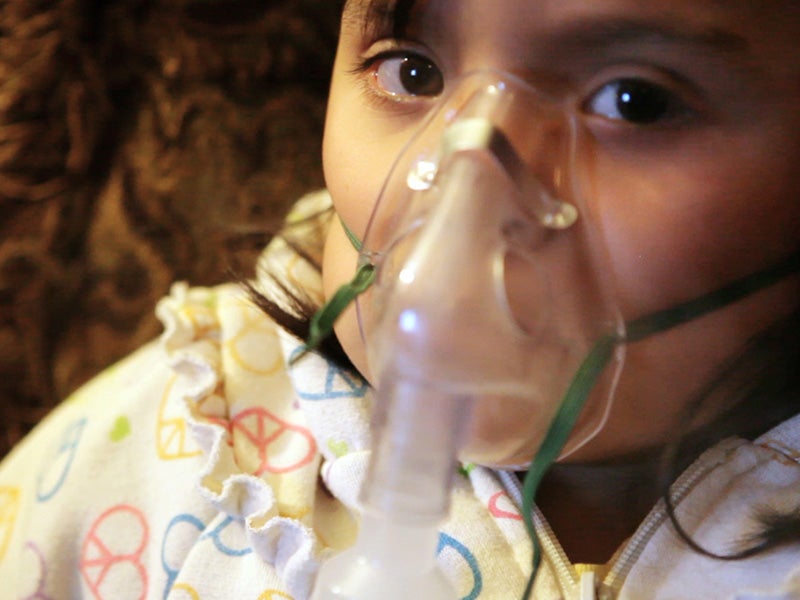Lives and Lungs Protected from Deadly Pollutant
Earthjustice litigation, on behalf of public health and environmental groups, spurred the Obama administration to set strong new standards for soot pollution—the first significant update since 1997. The new standards will annually prevent as many as 15,000 premature deaths and reduce health costs by $118 billion.

This page was published 13 years ago. Find the latest on Earthjustice’s work.
No one likes to breathe dirty and polluted air. Unfortunately, for some communities there may be little to no choice.
But today, the EPA took a step in the right direction to clean up soot pollution and protect millions of Americans forced to breathe dirty air. Administrator Lisa Jackson announced a tightened standard that will limit soot pollution in many major metropolitan areas across the country, cleaning up the smokestacks and tailpipes that belch out this dirty pollution.
The current standard, set in 1997, is outdated, prompting our legal action against the EPA. Last year, we partnered with the American Nurses Association, Physicians for Social Responsibility, the Hip Hop Caucus, and the National Council of Churches to collectively call on Congress and federal regulators to protect citizens from preventable air pollution. This effort, dubbed 50 States United for Healthy Air educated stakeholders on the need for strong clean air protections for all Americans. Thankfully, some voices on Capitol Hill got the message and called on the EPA to set forth strong soot standards.
Soot is composed of tiny microscopic particles that penetrate deep within the lungs often triggering respiratory harm and even premature death. Prevailing winds can carry soot across state and county lines.
Too often low-income and communities of color shoulder a disproportionate share of this dirty air burden.
Ruth McDermott, a Pennsylvania-based 50 States United Clean Air Ambassador, said:
The poor frequently have the greatest environmental burden related to air quality as they often live in industrialized areas that bring increased asthma risks.
Congressmen Charlie Rangel (D-NY) and Raul Grijalva (D-AZ) joined forces on a letter from 54 colleagues in the House of Representatives, touting the environmental justice benefits of setting a strong soot standard. Acknowledging that we have a special responsibility to clean up air pollution for overburdened communities was a welcome sign of solidarity for those who experience the adverse impacts of soot and various others form of air pollution.
But the pressure didn’t stop there. More than 600 doctors, nurses, scientists and health professionals joined forces and asked the president to protect the most sensitive people: the very young, seniors, and those with heart disease, lung disease, or diabetes. The scientists and health professionals asked that new federal standards be set at levels that will protect these sensitive people with an adequate margin of safety, as required by the Clean Air Act.
With this public outcry, the EPA needed nudging and so Earthjustice attorneys headed to court to force action. This summer, Earthjustice successfully won a federal court decision requiring the EPA to set forth updated soot pollution limits. Thereafter, the agency proposed updating soot air quality standards that have remained largely unchanged since 1997.
Today, the EPA finalized a health-protective standard that our allies in Congress, health care, and the social justice communities were all calling on to provide much-needed relief for the most vulnerable citizens.
We will still need to remain vigilant in making sure the standards are carried out. But make no mistake: this was a big victory for millions of lungs in communities everywhere.
Established in 1989, Earthjustice's Policy & Legislation team works with champions in Congress to craft legislation that supports and extends our legal gains.